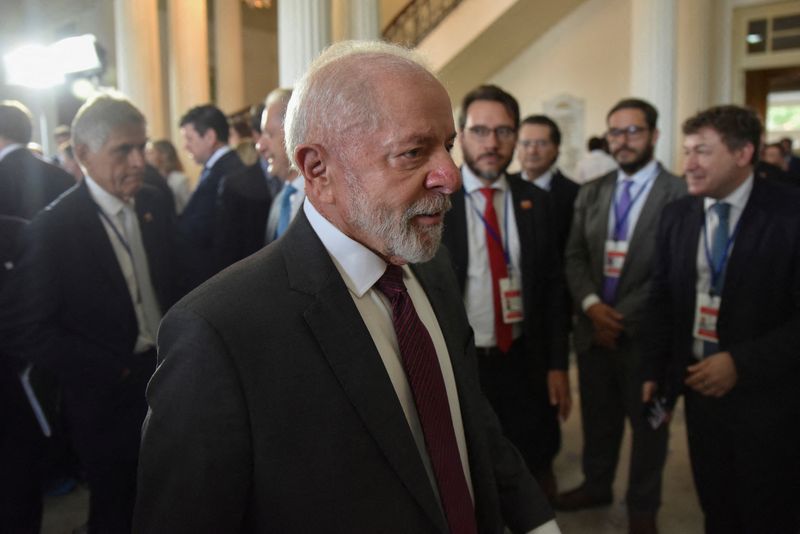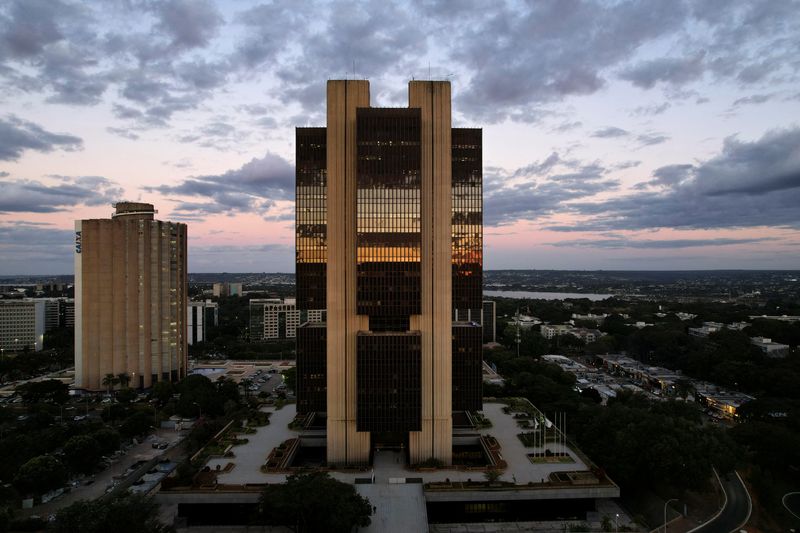By Marcela Ayres, Gabriel Araujo
SAO PAULO/BRASILIA (Reuters) -Market turmoil dragged Brazil’s real currency to an all-time low on Monday, after major central bank interventions again failed to allay market concerns about government spending.
The real closed at 6.09 per US dollar, with depreciation since the start of the year shaving off a fifth of its value, making it one of emerging markets’ worst performing currencies.
Interest rate futures continued to rise, with expectations that the central bank will raise its key interest rate again in January, likely by 125 basis points instead of 100 basis points according to recent guidance.
The real opened sharply lower against the US dollar as President Luiz Inacio Lula da Silva again criticized what he sees as unreasonably high borrowing costs. The currency briefly recovered losses following central bank interventions before resuming its downward spiral.
In an interview with major TV channel Globo broadcast late on Sunday, the leftist leader called the rate hikes “irresponsible” and said his government would “take care of that,” hinting at possible future policy changes.
Next (LON:) This year the central bank’s rate-setting board will have a majority of members chosen by Lula, as the president is commonly known, including his choice for governor.
The sharp fall in Brazil’s currency last month was caused by market disappointment over a long-awaited government spending cut package.
Congress still has to vote on the package a week before the planned recess. Still, Finance Minister Fernando Haddad expressed optimism Monday that approval for the package could be secured within this time frame.
Earlier in the day, the central bank announced a spot dollar auction, selling $1.63 billion, a move it also initiated on Friday. The bank also sold the entire $3 billion in an auction involving repurchase agreements it announced Friday.
Despite efforts to boost the real, market sentiment remained sour following the central bank’s rate hike earlier this month to take the benchmark rate to 12.25%, while signaling similar moves for the next two meetings.
“The only thing wrong in this country is that interest rates are above 12%. There is no explanation for that,” said Lula, who was released from hospital on Sunday morning after emergency surgery to treat and prevent bleeding in his head.
Lula argued that inflation of around 4% is “fully under control”.
In the central bank’s aggressive move this month, the market’s negative reception of the fiscal package was cited as a factor likely to push prices higher, with inflation expectations already diverging from the bank’s 3% target, plus or minus 1.5 percentage points.
A weekly survey of private economists continued to point to higher inflation expectations for next year. Economists surveyed see that interest rates will peak at 14.25% in March.
Brazil’s annual inflation rate ended November at 4.87%.

Lula has repeatedly criticized what he sees as excessively high interest rates, often slamming outgoing central bank governor Roberto Campos Neto. The president has asked Gabriel Galipolo to replace him.
Next year, Lula’s appointees will have a 7-2 majority on the bank’s nine-member rate-setting committee, up from the current 4-5 minority.


